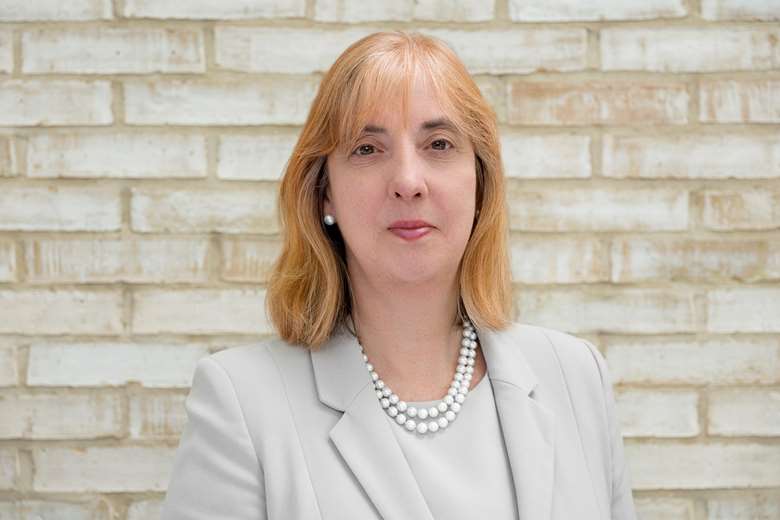As the Childcare Survey turns 21, we demand change for the next generation
Dr Carol Homden, CEO of Coram
Wednesday, March 23, 2022

Tomorrow (23 March) the Chancellor will deliver his much-anticipated spring statement to the House of Commons, amid growing financial pressures for families and uncertainty for the childcare sector resulting from the pandemic.
The annual Childcare Survey 2022, published today by Coram Family and Childcare, reveals that prices have risen again since 2021. A part-time nursery place for a child under two in Britain now costs £138.70 a week, or over £7,200 a year. Childcare costs now significantly exceed the caps on the monthly amounts reimbursed through Universal Credit, risking plunging lower-income families into poverty at a time of intense economic uncertainty. We also know that many childcare providers are struggling to make ends meet and that the Government funding rates do not cover the care that they provide.
The research also illustrates a sharp drop in the availability of places, with only 57 per cent of local authorities report having enough places available for children under two, down from 72 per cent last year, and only 59 per cent report having enough childcare available for parents working full time, down from 68 per cent last year, – limiting many parents’ ability to work. Similarly, availability of the two-year-old free entitlement and the three- to four-year-old 15-hour entitlement has dropped by 9 per cent and 3 per cent respectively, hitting the most disadvantaged children and families the hardest.
Worryingly, there has also been a substantial drop in the number of children taking up early years entitlements this year. Some 38 per cent of local authorities have reported a decrease in the take-up of the two-year-old free entitlement, and 40 per cent have also seen a decrease in the uptake of the three- to four-year-old free early education entitlements. This data raises particular concerns about reaching the disadvantaged children who are eligible and are most likely to benefit from a boost during the early years. High-quality childcare can play a vital role in narrowing the achievement gap that opens up for poorer children before they start school, levelling the playing field between them and their more privileged peers all the way up to GCSE level.
Last week our colleagues from the Covid and Childcare project published new research on the experience of early years providers and staff during the pandemic, entitled ‘Essential but undervalued: early years care & education during COVID-19.’ The report outlines the difficult predicament of nursery workers during the pandemic as early years staff continued to work despite concerns over the lack of PPE, as well as facing a loss of income and lack of sick pay. As Christine Berry put it in The Guardian, nursery staff were simultaneously treated as both 'indispensable and disposable.'
This has led to a retention crisis within the early years and the Childcare Survey shows that 94 per cent of local authorities are struggling to find staff with the required qualifications and experience. This situation also threatens to affect the quality of provision offered, as settings struggle to stay sustainable. Some 30 per cent of local authorities say providers have increased the number of children looked after by each staff member and 30 per cent thought that quality had reduced since the pandemic.
Changes to staffing also have a significant impact on children with SEND and whether childcare continues to be accessible to them. Some 11 per cent of local authorities reported a drop in the number of children with SEND accessing childcare as well as increasing gaps in availability, with only 21 per cent of local authorities having enough childcare for children with SEND, down from 25 per cent in 2021. This reduction in the proportion of childcare for disabled children means that the SEND code of practice (DfE and DHSC, 2014) and the childcare sufficiency requirements for children with SEND are not being met.
The British childcare system is currently falling short of its potential to tackle poverty, both as a way of improving long-term developmental outcomes for disadvantaged children and by helping their parents participate in work or training. This is even more pressing in light of the steep rise in the cost of living. Coram Family and Childcare is calling on Government to reform Universal Credit, by increasing the maximum amount of childcare costs paid under Universal Credit and guaranteeing support for upfront childcare costs. This will reduce additional pressure on family incomes and make provision more accessible for the most disadvantaged families. We also want to see local authorities extend eligibility of 30 hours provision, at a minimum to parents in training, education, to single parents and families with no recourse to public funds. Supporting parents to increase their qualifications and employability can have significant positive impacts for families, given that those with higher skill levels tend to earn more, have improved job security and are less reliant on benefits. Extending state support in this way would be a major step in opening up more opportunities for parents and children alike.
The Government must take immediate action to ensure that every child in the country has access to affordable, high-quality childcare and that the childcare sector is supported to remain sustainable and deliver this essential part of social infrastructure.





